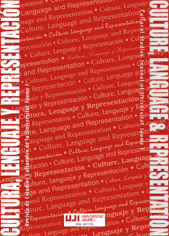Crossing the border between postcolonial reality and the ‘outer world’: Translation and representation of the third space into a fourth space
Main Article Content
Abstract
Stemming from poststructuralist interpretations of space and following Bhabha’s third space enunciation, in this paper we have coined the term fourth space and used this concept as a heuristic tool to address the need to establish a coherent standpoint for the analysis of postcolonial literature reception within a society with no immediate relation to the specific decolonisation process of the author’s country. We explore this concept through the case of the Spanish reception of African postcolonial literature. In Spain, this perspective has remained under-theorised in an era when representation of hybridity is at a vital point, since such representation will provide the social scaffolding for each person’s identity construction. Under these circumstances, literature can be transformative and the role of translation as a decolonising tool can help to create unbiased knowledge through an ethical interpretation of the original texts. We will analyse how those differentiating elements affect the translational process.
Downloads
Article Details
An open-access CREATIVE COMMONS copyright license is used. Those authors whose works are published by this journal, accept the following terms:
- Authors will retain their copyright and guarantee the Journal the right to first publish their work, which will simultaneously be subject to the Creative Commons Recognition License CC BY SA that allows third parties to share the work, provided that its author and first publication is indicated.
- Authors may adopt other non-exclusive license agreements for the distribution of the published version of the work (e.g., deposit it in an institutional telematics file or publish it in a monographic volume) provided that the initial publication in this journal is indicated.
- Authors are allowed and recommended to disseminate their work over the Internet (e.g. in institutional telematics files or on their website) before and during the submission process, which can produce interesting exchanges and increase quotes of the published work.


